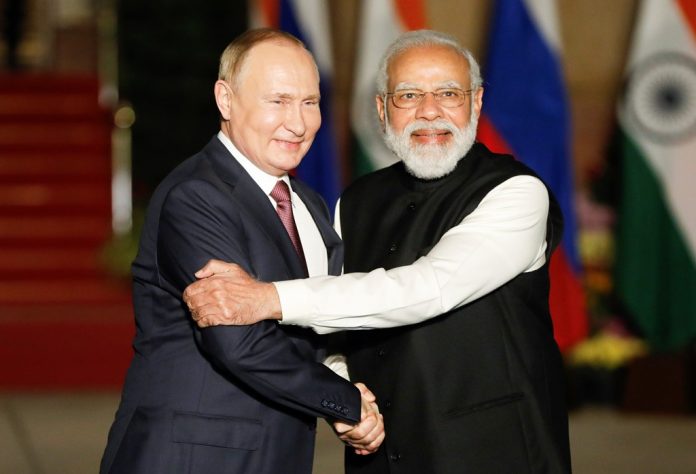India is practising real-politics when it comes to the crisis in Ukraine, rather than moral and ideological considerations it’s stand is based on practical and national interests.
The Modi government has abstained from multiple United Nations Security Council and General Assembly resolutions against Russia.
It has stopped short of condemning the invasion or even calling it one, emphasising humanitarian concerns for the end of the conflict.
If the foreign secretary’s mission is to make Delhi condemn the actions of the Russia’s, then it is set to fail.
Russia and India have a historic seven decade relationship, burnishing their ties through the Cold War era and cementing it at the end of the century.
The country supplies the bulk of India’s military hardware and also helps service, maintain and upgrade the armaments.
In last ten years India has reduced its dependency by buying more technological and advanced armaments from the US, France and Israel.
So far, India has evaded tough American sanctions which prevent countries from buying Russian weapons.
It asserted it required Russian weapons for “urgent national interest” and campaigned heavily with the Trump and Biden administrations.
For India, the immediate and long term threat for its security comes from China.
In the last few years, tensions along the 2,170 mile border has been running high and clashes between soldiers in the Himalayan mountains have resulted in the deaths of many soldiers on both sides.
On its western front lies its arch enemy nuclear Pakistan which now has very close ties with China.
The fear of hostilities and far worse, conflict on two fronts is a nightmare situation for India.
The Politics of Oil
India is the third largest consumer of oil of which almost 80% is imported.
Though it imported just about 2 % from Russia last year, there has been an uptick in its imports now.
Moreover, Russia is providing discounted oil and even agreeing to a transport package on purchase.
The two countries are reported to be working on a mechanism of a rouble to rupee exchange which will save precious foreign exchange.
India needs oil for its large and growing economy and will not miss a chance on discounted fuel.
Beeline for Delhi
Ms Truss wants to counter Russia’s aggression and reduce global strategic dependence on the country ahead of key NATO and G7 meetings next week.
Interestingly today, the Russian foreign minister Sergey Lavrov will arrive on his two day official visit, meeting the very same people Ms Truss has.
Also visiting will be the US deputy national security advisor Daleep Singh, one of the architects of the sanctions against Russia.
The largest democracy may be disappointing many but its surely focusing on its national, strategic and economic interest.
It does not want to be pigeonholed in a US-led western camp nor a China-led Russia camp.


